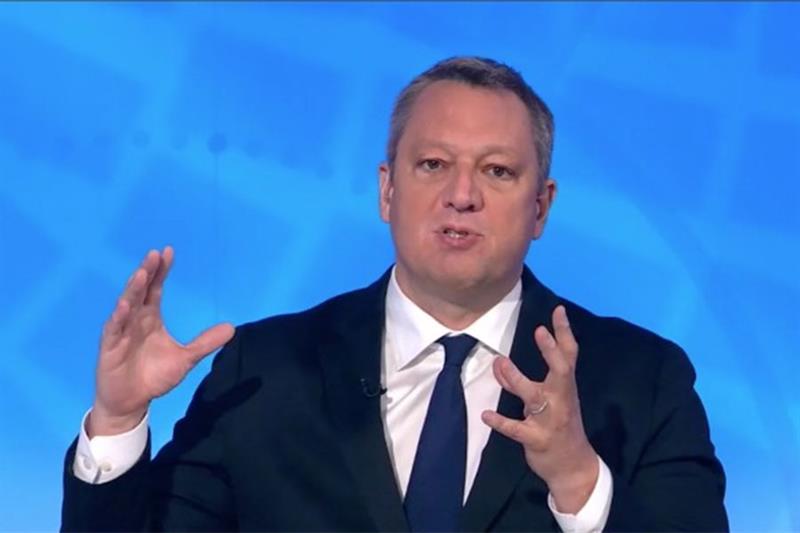
Director of monetary and capital markets at the IMF Tobias Adrian speaks during a press briefing on Tuesday 19 April, 2022.
Singh made his comment in response to a question by Ahram Online about the expected effects of increasing interest rates globally on developing economies, particularly on Egypt, taking into account the Central Bank of Egypt’s (CBE) recent decision to raise interest rates by 100 basis points.
This took place during a press briefing the IMF held on Tuesday to release the Global Financial Stability report amid the annual meeting of the IMF and the World Bank Group, which kicked off on Monday.
Singh added that Egypt imports between 50 and 60 percent of its wheat from both Russia and Ukraine, and the war has led to inflation and other effects, including rising commodity prices.
In its World Economic Outlook report, released on Tuesday on the sidelines of the annual meeting, the IMF said it expects Egypt’s inflation to record 7.5 percent in 2022 and to accelerate to 11 percent in 2023.
Director of monetary and capital markets at the IMF Tobias Adrian explained that central banks in emerging markets, including Egypt, are expected to experience significant capital outflows amid the Ukraine war, and central banks in these markets need to work aggressively to put the elevated inflation under control.
Emerging markets are projected to lose 30 percent of capital inflows, up from 20 percent predicted in October, driven by the war, according to the Global Financial stability report.
Tobias stressed that creating an appropriate climate for crypto currencies, establishing a global payment system, ensuring climate finance and curbing inflation are the main areas central banks globally need to work on for the sake of countering the deteriorating global economy.
According to the report, deterioration in the economic outlook and the withdrawal of monetary accommodation and other policy support measures are expected to affect bank asset quality, thus supervisory authorities should ensure that asset classifications and loan-loss provisions accurately reflect credit risk and losses.
“Any significant decline in capital ratios should be accompanied by a credible capital restoration plan. Authorities should also determine whether financial institutions have a comprehensive risk management process, with a special focus on credit, market, and counterparty risks. Authorities should ensure that broker dealers have appropriate visibility and buffers for aggregate derivatives exposures, including adequate capital and margin requirements for derivatives that are not centrally cleared,” the report explained.
It added that the surge in volatility as well as the associated dislocations in commodity markets indicate the necessity of ensuring the adequacy of disclosures and standards of transparency to counterparties, particularly major financial institutions such as dealer banks.
The report also said that adequate disclosures and transparency standards are critical to supporting comprehensive and robust risk management within the financial sector and its oversight by supervisory authorities.
“Robust risk management at these financial institutions is paramount, particularly the adequacy of margining and stress testing vis-à-vis concentration, market, and credit risks,” it added.
Short link: